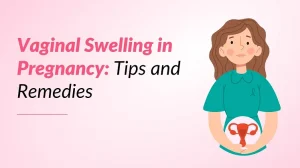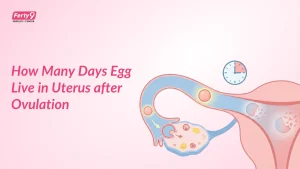Fertility health issues are of much concern to both men and women. People are faced with misconceptions about fertility and naturally, it is good to know more about what entails fertility.
Often misconceptions are there about fertility as all facts are not known to a person. It is better to know more about fertility and also facts that are unknown about it.
Here are a few misconceptions:
Being on the pill for too long will delay pregnancy
This is indeed a myth. If a person has spent years of one’s life trying not to get pregnant, it is only natural to wonder if it will take some time to get things back on track.
Laptops can impair sperm production
This is indeed a fact. Much concern is felt when a person uses a laptop on the lap, as the heat does affect negatively male fertility. Treating a laptop like a desktop helps.
This applies to cell phones as well.
Watching a sexy movie can help a person get pregnant
This is rather a fact. Studies have indicated that watching a romantic movie together can indeed enhance levels of progesterone, a sex hormone that is considered to increase romantic behavior. And it does not have to be X-rated either, so grab some popcorn, and then each other.
If you want to get pregnant, order some oysters
This is a fact. Believe it or not, this cliché does hold up under scientific scrutiny. Oysters contain zinc, which helps increase sperm production. It also happens to be a libido booster, and both need libido to spare when trying to conceive. The benefits extend to both sexes.
The more sex a person has during his or her fertile days, the more likely the person does conceive
This is also true. The more often a person has sex during the peak fertile days, the more likely the person may conceive. Couples who do tend to have regular sex, implying every day or every other day, do enjoy the highest pregnancy rates.
After an egg is released, it can be rather fertilized for up to two days
This is also a myth. While sperm do hang out and wait for their date for three days or more, an egg has only a 12- to about 24-hour shelf life. Thus the sperm has to catch it while they can. Timing is just about everything when it does come to fertility, which is why knowing the signs of ovulation is an important aspect of conception success.
.This is a myth. While having an orgasm may be alright, a woman does not need the big O to conceive.
The longer it takes the woman to get pregnant, the more likely the person will conceive a boy
This is a fact. Women who do take longer to conceive may be more likely to be having a thicker cervical mucus, which puts Y-chromosome sperm at a plus point.
Men don’t have a biological clock
This is a myth. It is a clock lasting longer. Men can produce viable sperm — and father babies — well even if they are older as they are more likely to have fertility issues due to dipping testosterone levels, the decrease in quantity as well as the quality of sperm, sperm’s diminished strength, and also motility, along with other factors.
Fertility does decline after 35
This is a fact. Getting pregnant does become a bit harder by around age 30, and the chance of getting pregnant tends to drop for women in their mid-30s as well as beyond.
The woman does not become pregnant when she has her period
This is a myth. It is possible to conceive when having periods.
Stress does not affect the ability to get pregnant
This is a myth. While the link between stress as well as conception is still being explored, there is evidence that highly stressed women may have more problems getting pregnant. Reducing stress levels helps improve fertility.
To reduce anxiety, a few yoga poses, deep breathing, venting to friends, or even eliminating the biggest stressors in one’s life helps is a good idea.
Conclusion
Myths about fertility are many indeed!





























